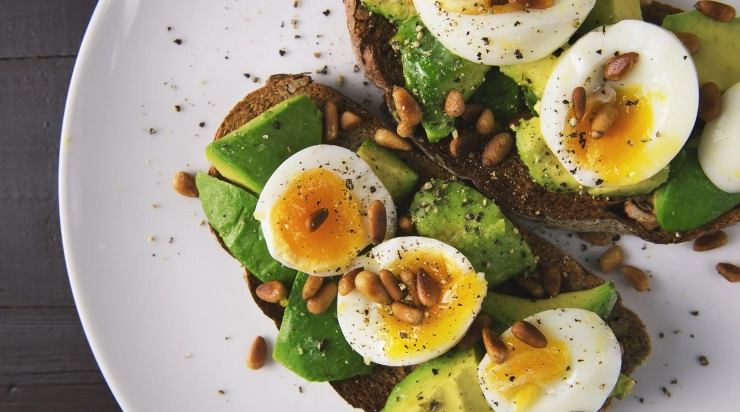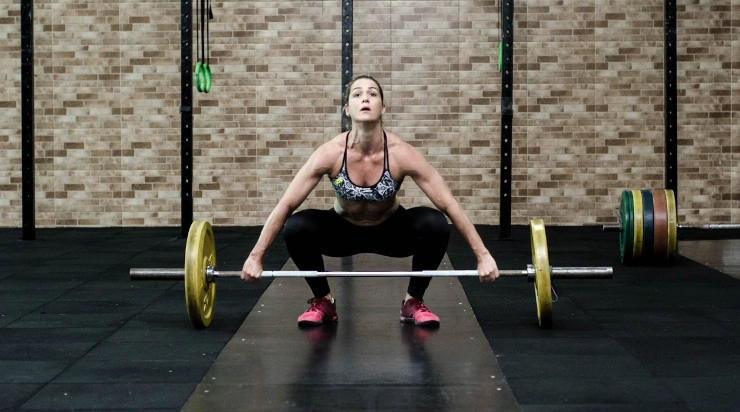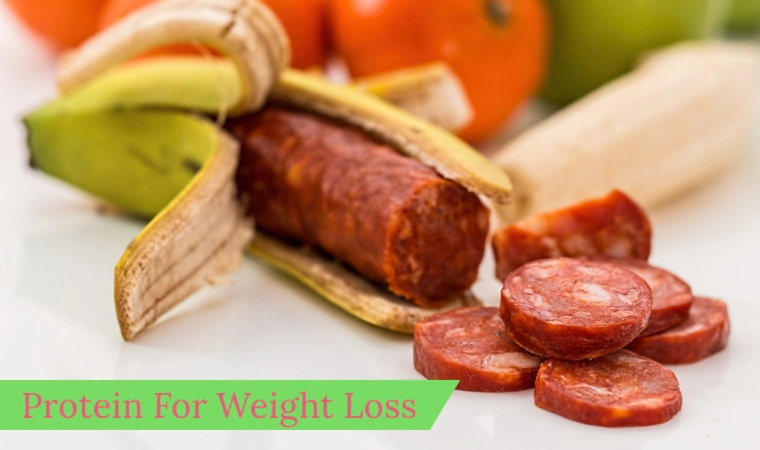If ever there was a most topical subject when it comes to health and fitness, it would easily be protein. Ah, protein, that gym-going buzz-word that we all hear, some fear and probably don’t truly understand. But in all honestly, protein for weight loss isn’t just a hot topic, it’s a vital part of life.
It’s easy to think of protein as just a requirement for the super health conscious only, but that couldn’t be far from the truth. Sure, protein has got itself a stigma, but the proof is in the pudding – it is just as important as they all say.
So, at a bit of an attempt at myth busting, fact-finding, and advice dishing all in one, I’m going to tackle the highs, the (pretty much non-existent) lows, and the need to knows.
Table of Contents
What Exactly is Protein for Weight Loss?
In the simplest of forms, protein is made from molecules containing amino acids. Those molecules then, in turn, make up vital parts of our body tissues, such as muscles, hair, enzymes, and antibodies [1].
Our bodies do make some proteins themselves, but others need to be obtained through food. These are specifically referred to as essential amino acids [2] – a term that you may or may not have heard before.

But it isn’t just okay to hope you’re giving your body enough. Proteins can be found in a whole range of foods, but the actual quality of it can vary. This may sound silly, but different proteins can have different strengths and benefits for our bodies.
Now that you know the basic science of what protein is, you’ll start to believe the part where I said we all need it!
And Why Do We Need It?
Well, a part from building our bodies up, it also has some regenerative qualities. If you know all about protein as a buzzword, you’ll know that it’s the nutrient of choice for bodybuilders. And for a very good reason. With the effects that it can have on our bodies, protein is often used to grow muscle. But it can also have the same benefits for our skin, hair, and nails.
So ladies, if you lack a certain shine, you know what to do. Protein can do wonders for our body besides just growing muscle.
Does it Really Help with Weight Loss?
In short, yes. Over the years, there’s been speculation over low-fat diets and of course low carb, but putting a focus on what to eat and get more of in your diet instead of what to eat less or could be just the thing you’ve been looking for.
Not only does a diet high in protein encourage muscle growth and regeneration, but it also speeds up your metabolism. Now I bet that’s something you weren’t expecting. I did say there really was a reason it was considered a superfood group in the world of health and fitness.
And if you thought that the whole muscle building qualities were not for you, you might change your mind when you learn that muscle mass (having muscle and more of it) helps to keep calories burning at all times.
Fueling your body the right way gets it working properly, and when it’s working properly, the calories can be burnt properly. Simple.

But the benefits don’t just stop there. Protein for weight loss also helps with hunger. If you find that you’re a bit of a snacker and you always seem to be hungry, what are the chances that your vice is simple sugars? They’re pretty high. A diet high in protein keeps you fuller for longer and cuts out those emotional hunger cravings purely because it’s much more satiating than carbs and fat.
Where Can I Get My Hands On Some?
Well, that’s a great question. Proteins can be found in all sorts of food, but the most commonly known ones are animal products. They’re also the best sources. Meat, fish, dairy, and eggs are packed full of those essential amino acids we talked about earlier and can be a vital part of your diet.
But, if you don’t eat an animal-based diet, you’re probably thinking this could be difficult for you. And it’s not. It just means you have to look for alternatives. Foods like quinoa, nuts and seeds, beans and lentils, peas, tofu, and some leafy greens are all options and high in protein.
Making sure that you eat the right amount of protein purely depends on you and your lifestyle. Arguably, statistics say that men require more than women. Based on an average of 0.8 grams of protein needed per kilogram of your body weight, you can sort of work out what you might need.
But that’s just a rough estimate. If you have a more active lifestyle, you might want more. You should also take your exercise requirements and goals into account. If you’re looking to grow muscle or lose fat, the amount could be totally different again.
And The Bad Bits?

You may have heard that protein causes osteoporosis and strain on the kidneys, but is any of this backed up by science? I don’t think it is. A diet high in protein is proven to lower blood pressure however and can improve bone health in people that lead a healthy lifestyle.
So, is too Much Protein too Much?
If you’re asking me personally, I’d say no. But then again, I think nutritionists would too. Yes, those with certain health conditions would need to consult a professional before making any changes to their diet, just to ensure that they’re doing the right thing.
But based on what protein actually does, what it can do for your diet and the improvements it can have on our health, a diet rich in protein sure is a happy one.
[1] https://en.wikipedia.org/wiki/Protein
[2] https://www.healthline.com/nutrition/essential-amino-acids

